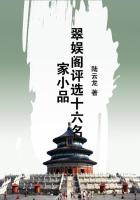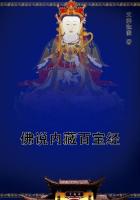With all this love of the real, which makes him dwell so fondly on every detail of armour, of implement, of art; on the divers-coloured gold-work of the shield, on the ****** of tires for chariot-wheels, on the forging of iron, on the rose-tinted ivory of the Sidonians, on cooking and eating and sacrificing, on pet dogs, on wasps and their ways, on fishing, on the boar hunt, on scenes in baths where fair maidens lave water over the heroes, on undiscovered isles with good harbours and rich land, on ploughing, mowing, and sowing, on the furniture of houses, on the golden vases wherein the white dust of the dead is laid,--with all this delight in the real, Homer is the most romantic of poets. He walks with the surest foot in the darkling realm of dread Persephone, beneath the poplars on the solemn last beach of Ocean. He has heard the Siren's music, and the song of Circe, chanting as she walks to and fro, casting the golden shuttle through the loom of gold. He enters the cave of the Man Eater; he knows the unsunned land of the Cimmerians; in the summer of the North he has looked, from the fiord of the Laestrygons, on the Midnight Sun. He has dwelt on the floating isle of AEolus, with its wall of bronze unbroken, and has sailed on those Phaeacian barks that need no help of helm or oar, that fear no stress either of wind or tide, that come and go and return obedient to a thought and silent as a dream. He has seen the four maidens of Circe, daughters of wells and woods, and of sacred streams. He is the second-sighted man, and beholds the shroud that wraps the living who are doomed, and the mystic dripping from the walls of blood yet unshed. He has walked in the garden closes of Phaeacia, and looked on the face of gods who fare thither, and watch the weaving of the dance. He has eaten the honey-sweet fruit of the lotus, and from the hand of Helen he brings us that Egyptian nepenthe which puts all sorrow out of mind. His real world is as real as that in Henry V., his enchanted isles are charmed with the magic of the Tempest. His young wooers are as insolent as Claudio, as flushed with youth; his beggar-men are brethren of Edie Ochiltree; his Nausicaa is sister to Rosalind, with a different charm of stately purity in love. His enchantresses hold us yet with their sorceries; his Helen is very Beauty: she has all the sweetness of ideal womanhood, and her repentance is without remorse. His Achilles is youth itself, glorious, cruel, pitiful, splendid, and sad, ardent and loving, and conscious of its doom.
Homer, in truth, is to be matched only with Shakespeare, and of Shakespeare he has not the occasional wilfulness, freakishness, and modish obscurity. He is a poet all of gold, universal as humanity, ****** as childhood, musical now as the flow of his own rivers, now as the heavy plunging wave of his own Ocean.
Such, then, as far as weak words can speak of him, is the first and greatest of poets. This is he whom English boys are to be ignorant of, if Greek be ousted from our schools, or are to know only in the distorting mirror of a versified, or in the pale shadow of a prose translation. Translations are good only as teachers to bring men to Homer. English verse has no measure which even remotely suggests the various flow of the hexameter. Translators who employ verse give us a feeble Homer, dashed with their own conceits, and moulded to their own style. Translators who employ prose "tell the story without the song," but, at least, they add no twopenny "beauties"and cheap conceits of their own.
I venture to offer a few examples of original translation, in which the mannerisms of poets who have, or have not, translated Homer, are parodied, and, of course (except in the case of Pope), exaggerated.
The passage is the speech of the Second-sighted Man, before the slaying of the wooers in the hall:-"Ah! wretched men, what ill is this ye suffer? In night are swathed your heads, your faces, your knees; and the voice of wailing is kindled, and cheeks are wet with tears, and with blood drip the walls, and the fair main beams of the roof, and the porch is full of shadows, and full is the courtyard, of ghosts that hasten hellward below the darkness, and the sun has perished out of heaven, and an evil mist sweeps up over all."So much for Homer. The first attempt at metric translation here given is meant to be in the manner of Pope:
"Caitiffs!" he cried, "what heaven-directed blight Involves each countenance with clouds of night!
What pearly drop the ashen cheek bedews!
Why do the walls with gouts ensanguined ooze?
The court is thronged with ghosts that 'neath the gloom Seek Pluto's realm, and Dis's awful doom;In ebon curtains Phoebus hides his head, And sable mist creeps upward from the dead."This appears pretty bad, and nearly as un-Homeric as a translation could possibly be. But Pope, aided by Broome and Fenton, managed to be much less Homeric, much more absurd, and infinitely more "classical" in the sense in which Pope is classical:
"O race to death devote! with Stygian shade Each destined peer impending fates invade;With tears your wan distorted cheeks are drowned;With sanguine drops the walls are rubied round:
Thick swarms the spacious hall with howling ghosts, To people Orcus and the burning coasts!















